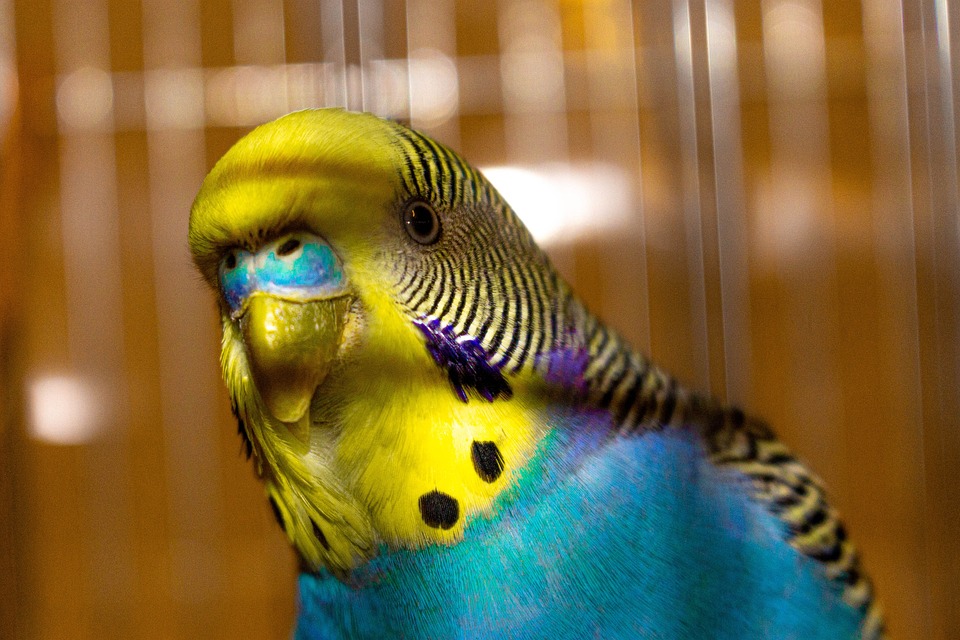Parrots are highly intelligent and social creatures that require mental stimulation and interaction. However, some parrots may develop attention-seeking behaviors, particularly during mealtimes. These behaviors can be disruptive and may lead to an unhealthy mealtime routine. In this article, we will explore effective strategies to discourage excessive attention-seeking behavior during mealtimes, ensuring a more harmonious dining experience for both you and your feathered friend.
Understanding Excessive Attention-Seeking Behavior:
1. Definition of attention-seeking behavior in parrots: Attention-seeking behavior in parrots refers to behaviors that are performed to gain attention or to be the center of focus. This can include squawking, biting, screaming, or other disruptive actions.
2. Common signs and manifestations of excessive attention-seeking behavior: Excessive attention-seeking behavior during mealtimes can manifest as incessant squawking, biting at food bowls or hands, flying around the room, or any other behavior that disrupts the mealtime routine.
3. Reasons behind the development of attention-seeking behavior: Attention-seeking behavior in parrots can develop due to various reasons, including boredom, lack of mental stimulation, lack of social interaction, or previous reinforcement of such behavior.
Establishing a Consistent Routine:
1. Importance of a regular feeding schedule: Establishing a regular feeding schedule for your parrot helps them anticipate and understand when mealtime occurs. This consistency can help reduce anxiety and attention-seeking behavior.
2. Setting boundaries and consistent mealtime expectations: Clearly communicate to your parrot what is expected during mealtime. For example, teach them to wait patiently for their food without engaging in excessive attention-seeking behaviors. Consistency is key in reinforcing these boundaries.
3. Creating a designated mealtime area for your parrot: Designate a specific area for your parrot to eat their meals. This will help them understand that mealtime happens in a specific location, reducing the likelihood of attention-seeking behavior throughout the house.
Implementing Positive Reinforcement Techniques:
1. Rewarding calm and patient behavior during mealtimes: Whenever your parrot exhibits calm and patient behavior during mealtime, provide positive reinforcement such as verbal praise or a small treat. This helps reinforce the desired behavior and encourages them to continue behaving appropriately.
2. Utilizing clicker training to reinforce good behavior: Clicker training is a positive reinforcement technique that involves using a clicker to mark desired behavior, followed by a reward. By incorporating clicker training during mealtime, you can reinforce good behavior and discourage attention-seeking actions.
3. Incorporating puzzle toys and foraging activities to keep your parrot engaged: Provide your parrot with mentally stimulating toys and activities during mealtime. This can include puzzle toys or foraging activities that require them to work for their food. Keeping their minds engaged can help redirect their attention away from attention-seeking behaviors.
Addressing Undesirable Behavior:
1. Ignoring attention-seeking behavior to avoid reinforcement: When your parrot exhibits attention-seeking behavior during mealtime, it’s important to avoid giving in to their demands. By ignoring this behavior and not providing any attention, you avoid reinforcing the unwanted behavior.
2. Redirecting your parrot’s focus onto an alternative activity: When your parrot engages in attention-seeking behavior, redirect their focus onto a more appropriate activity. Offer them a toy or engage them in a training session to divert their attention away from disruptive behavior.
3. Avoiding punishments or negative reinforcement methods: Punishments or negative reinforcement methods can be harmful to your parrot and may exacerbate attention-seeking behaviors. Focus on positive reinforcement and redirection techniques instead.
Enriching the Environment:
1. Providing mentally stimulating toys and activities outside of mealtime: Alongside mealtime, provide your parrot with a variety of mentally stimulating toys and activities throughout the day. This helps prevent boredom and reduces the likelihood of attention-seeking behavior during meals.
2. Rotating and introducing new toys to prevent boredom: Rotate your parrot’s toys regularly to keep their environment fresh and engaging. Introduce new toys periodically to provide novelty and prevent boredom.
3. Encouraging natural foraging behaviors with food puzzles or scatter feeding: Parrots have a natural instinct to forage for food. Encourage this behavior by offering food puzzles or scatter feeding, where food is hidden or scattered around their environment. This stimulates their natural foraging instincts and keeps them occupied.
FAQs (Frequently Asked Questions):
Q1. How long does it take for a parrot to adjust to a new mealtime routine?
A: Each parrot is different, and the time it takes for them to adjust to a new mealtime routine can vary. Generally, with consistency and patience, most parrots can adapt within a few weeks.
Q2. Is it necessary to offer treats during mealtime to discourage attention-seeking behavior?
A: Offering treats during mealtime can help reinforce positive behavior and encourage your parrot to stay calm and patient. However, it is important to ensure that treats are given in moderation and are a healthy part of their overall diet.
Q3. Can attention-seeking behavior during mealtimes indicate a health issue in my parrot?
A: While attention-seeking behavior during mealtimes is often behavioral in nature, it is always a good idea to rule out any potential health issues. If you are concerned, consult with an avian veterinarian to ensure your parrot is in good health.
Q4. Should I completely ignore my parrot if it exhibits disruptive behavior during meals?
A: Ignoring attention-seeking behavior is often an effective strategy to discourage the behavior. However, it is important to differentiate between attention-seeking behavior and potential distress or health issues. Use your judgment and consult with a professional if needed.
Q5. What should I do if my parrot refuses to eat during regular mealtimes?
A: If your parrot refuses to eat during regular mealtimes, it is important to assess their overall health and consult with a veterinarian if necessary. Changes in appetite can indicate underlying health issues that need to be addressed.
Conclusion:
By understanding the underlying causes of attention-seeking behavior and implementing effective strategies, you can discourage excessive attention-seeking behaviors during mealtimes in your parrot. Consistency, positive reinforcement, and environmental enrichment are key to establishing a healthier mealtime routine. Remember, patience and understanding are essential when working with your feathered companion.









